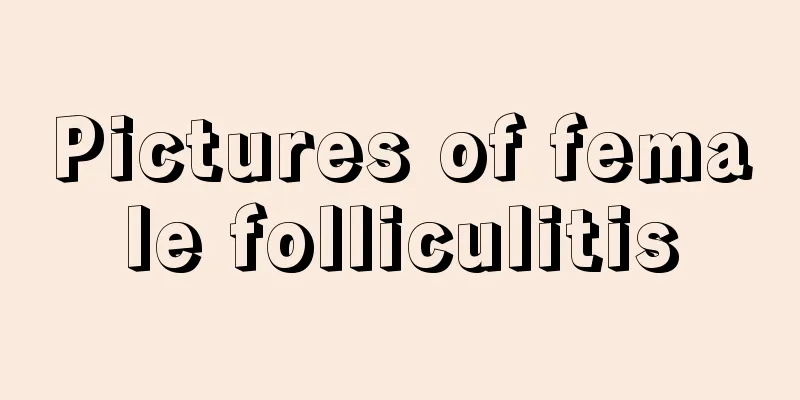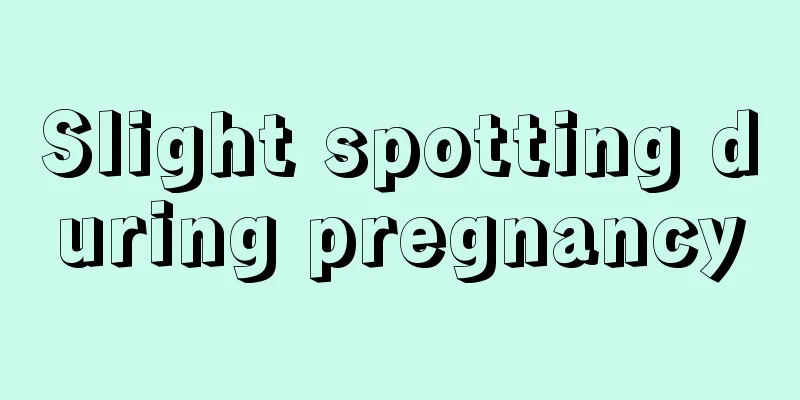Stroke: Scientific treatment to prevent "recurrence"

|
Author: Yang Qiong, deputy chief physician, Peking University Third Hospital Liu Xiaolu, deputy chief physician, Peking University Third Hospital Reviewer: Fan Dongsheng, Chief Physician, Peking University Third Hospital Stroke can cause permanent neurological damage. If it is not diagnosed and treated promptly during the acute phase, the patient may develop serious complications or even die. Stroke is prone to relapse after treatment. Effective prevention of relapse can improve the patient's prognosis. Let's learn about the precise treatment and relapse prevention strategies for stroke. Figure 1 Copyright image, no permission to reprint 1. How to treat stroke? Stroke can be treated in different ways according to the different sites of onset, mainly including drug therapy and surgical treatment. Specific treatments for stroke include thrombolysis, anticoagulation, antiplatelet aggregation and neuroprotective treatment; non-specific treatments include lowering blood pressure, controlling blood sugar, and treating cerebral edema and intracranial hypertension. (1) Drug treatment Figure 2 Copyright image, no permission to reprint Thrombolysis is currently recognized as the most effective treatment for stroke, but there are strict time window requirements, that is, intravenous thrombolysis is limited to 4.5 hours after onset, and arterial thrombolysis time can be appropriately extended. For patients with stroke and hypertension, blood pressure control should follow the relevant guidelines for stroke during the acute phase of stroke; for patients with chronic or old stroke, the blood pressure control target is generally <140/90 mmHg; for patients with dyslipidemia and diabetes, the blood pressure control target is generally <130/80 mmHg. The principle of antihypertensive treatment for stroke patients is stable and lasting, and effectively control 24-hour blood pressure, especially morning blood pressure. During antihypertensive treatment, drugs should start with a small dose, and the blood pressure should not be lowered too quickly to prevent insufficient blood supply to the brain. Within 24 hours of the onset of ischemic stroke, patients' blood pressure should be controlled with caution. Figure 3 Copyright image, no permission to reprint (2) Surgical treatment 1) Carotid endarterectomy: It is suitable for patients with severe stenosis of the extracranial segment of the internal carotid artery (stenosis degree exceeds 70%), stenosis below the mandibular angle and surgical accessibility. If the internal carotid artery is completely occluded within 24 hours, surgical treatment can be considered after appropriate evaluation; however, if the occlusion time exceeds 24 hours and encephalomalacia has occurred, surgical treatment is not suitable. Figure 4 Copyright image, no permission to reprint 2) Extracranial-intracranial artery anastomosis: This procedure is effective in preventing transient ischemic attacks. The options include superficial temporal artery-middle cerebral artery anastomosis, occipital artery-posterior inferior cerebellar artery anastomosis, and occipital artery-posterior cerebral artery anastomosis. 2. My body has fully recovered after a stroke. Do I still need to continue taking medication? One week ago, Lao Wang suddenly couldn't hold the chopsticks with his right hand while eating breakfast. He staggered and almost fell on his way to the bedroom. His family quickly sent him to the hospital. Figure 5 Copyright image, no permission to reprint The doctor diagnosed Lao Wang with cerebral infarction. After one week of treatment, Lao Wang's body basically recovered and he could be discharged from the hospital. Before leaving, the doctor prescribed several oral medications for Lao Wang and told him to take the medications on time and to go to the outpatient clinic for regular checkups. Lao Wang had a question in his mind: I have recovered, why do I need to take medication after being discharged from the hospital? Figure 6 Copyrighted images are not authorized for reproduction In fact, the use of drugs for cerebral infarction has different meanings at different stages. Acute treatment may include thrombolytic drugs, oral drugs, Chinese patent medicines, etc. The main purpose is to dissolve blood clots, reduce cerebral edema and prevent complications. The occurrence of cerebral infarction is often caused by atherosclerosis or stenosis of blood vessels supplying brain tissue, easily detached emboli in the heart or other causes, so long-term oral medication is usually required to control these causes and avoid recurrence of cerebral infarction. These drugs include aspirin, clopidogrel, warfarin, rivaroxaban and dabigatran, which have antithrombotic effects, statins that lower blood lipids and stabilize atherosclerotic plaques, as well as antihypertensive and hypoglycemic drugs. Figure 7 Copyright image is not authorized for reproduction The treatment of cerebral infarction is by no means a "one-time deal". It must be treated as a "protracted war" with long-term medication to prevent it from "coming back". |
<<: Why do I have diarrhea when I am nervous? If this happens, it may be due to illness...
Recommend
What to do if cervical erosion and heavy bleeding occur
For women or female organisms, the uterus is one ...
What's the matter with the girl's blood after urinating?
Women's health is very fragile. They are easi...
What does the left ovarian echoless area mean?
The anechoic area of the uterus and ovaries ref...
How to lower high estrogen levels
Excessive estrogen metabolism in the body affects...
Which type of abortion causes the least damage to the uterus?
I believe that for many female friends, abortion ...
The dangers of sneezing during early pregnancy
Many expectant mothers are very careful about the...
Can I eat XO sauce during my period?
Of course, we can't do without some sauces an...
Six symptoms remind you that vertigo is coming
Vertigo is a common symptom that many people have...
Introduction to postpartum episiotomy care methods
Many women who have had a normal delivery are ver...
Is it good to eat grapes during confinement?
For women, confinement is the most important acti...
How much body fat percentage does a girl have to have a vest line
Persevere in the fight against weight loss every ...
How long does it take for the stomach to hurt after spotting?
Before giving birth, there will be many condition...
Inward-curling pear flower head
In real life, we may often see other people’s bea...
What causes pain on the left side of the lower abdomen during pregnancy?
For a pregnant woman, there are many things that ...
How to treat cough during pregnancy?
What should pregnant women do if they cough durin...









